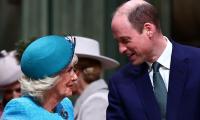MADRID: Nearly a million Madrid residents were bracing on Sunday for a partial lockdown as Spanish authorities seek to put a brake on a second wave of Covid-19.
The restrictions, which kick off Monday for two weeks, affect 850,000 people living mainly in densely-populated, low-income neighbourhoods in the south — or 13 percent of the population in and around the capital.
Like many countries in Europe, Spain is battling a coronavirus surge and, once again, Madrid is the worst-hit region. “We’ re concerned with the data we’re seeing, because the number of cases is double that of the national average and the number of hospital admissions... is triple the national average,” Prime Minister Pedro Sanchez said in a television interview on Saturday.
But he stressed he was not contemplating a national lockdown. Several districts of southern Madrid have counted more than 1,000 cases per 100,000 inhabitants — around five times the national average, which in itself is the highest in the European Union.
Residents will be banned from leaving their district other than for essential travel like work, medical care or taking children to school, Madrid’ s regional government said on Friday. They will be allowed to move around freely inside their zone but no one from outside will be allowed in unless absolutely essential.
Parks will be closed but shops, bars and restaurants will remain open at 50 percent capacity. Meanwhile, gatherings of more than six people will be banned in the entire region, down from ten currently.
On Sunday, people took to the streets in some of the affected districts in protest against the new measures. They sported placards reading “No to a class-based lockdown” or “They’re destroying our district and now they’ re locking us up.”
Madrid’ s regional president Isabel Diaz Ayuso, who has been slammed for her management of the crisis, is due to meet Sanchez on Monday. The meeting is a sign of central government concern over the crisis in Madrid, as the management of public health issues is normally the responsibility of Spanish regional authorities.
Regional health officials say Madrid’ s healthcare system is under growing pressure, with one in five hospital beds occupied by Covid patients. As such, experts fear a sharp increase in the regional mortality rate — which is currently much lower than in the spring — over the coming weeks. Spain has so far recorded over 30,000 deaths and 600,000 confirmed cases, according to official figures.
In a related development, London’s hard-hit live entertainment sector is hoping to prove it can resurrect itself from the coronavirus shutdown — and a series of gigs from a maze of tunnels could show the way to do it.
“Lockdown Town”, which opens on October 2, will see socially distanced performances of American music from the 1920s to 1950s in a network of vaulted venues near Waterloo station.
Audiences will have their temperatures checked during staggered arrival times, move from one venue to the next wearing masks, and not stay in one area for more than 15 minutes. The number of spectators has been capped at a maximum of 360 each evening — well below the 500-700 capacity in normal times.
“We have created a really flexible model,” “Lockdown Town” director Kerri McLean told AFP, adding ingenuity was key to getting the event on track. “We are just a tiny little piece in a huge puzzle but it does feel that we are giving an opportunity and a boost to these many talented people who haven’t had a gig for seven months.”
Organisers expect to employ more than 300 musicians playing ragtime to rock ‘ n’ roll, with the event described as London’ s first Covid-safe “immersive experience”. Carpenters, sound engineers and musicians were busy this week preparing the 30,000 square feet (2,800 metres) of space that once served as parking lots before the opening night.
The activity is a stark contrast with the scene at most theatres and nightspots in central London, which were shut in late March as part of the nationwide coronavirus lockdown. The government has allowed venues to partially reopen but many nightspots, particularly older theatres, remain closed because of strict social distancing rules.
One study published in June estimated that theatres and concert venues face a £3-billion ($3.9-billion, 3.3-billion-euro) shortfall in revenues this year. “It’ s been horrendous for the creative industry,” said McLean of the shutdown. “It has affected every single industry but for the live industry, the bounce back is really, really tough.”
The government this week tightened restrictions on socialising because of a surge in coronavirus cases, and imposed local lockdowns across swathes of the country. Under current rules, groups of more than six people from different households are not allowed to mix to curb the close-contact spread of the virus.
Fears of another wider shutdown persist but organisers One Night Records remain optimistic and say they have shifted “lots of tickets”, which are priced at £52. Some dates are already sold out.
Production manager Joanna Penso said London, which is normally packed with tourists and revellers, had been transformed into a “ghost town” by the pandemic. But the gigs could be just the tonic the city needs.
“The public really want to see something at the moment... I’ ve been craving to go dancing and listen to live music,” she said. “It’ s something that we have all been missing.”
During the shows, a costumed character with a cane will ensure health and safety regulations are strictly enforced. Penso predicted that would be the biggest challenge “but also that audiences are feeling safe enough to actually enjoy themselves”.















